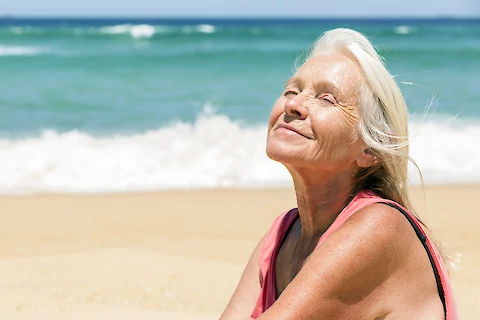
Are seniors getting enough Vitamin D? Vitamin D helps to maintain strong bones, boost seniors' immune systems, and promote overall health. With so many ways to get their daily dose, it can be hard to know what's best for them.
In this article from Senior Helpers Lake St. Louis, we'll dive into the different sources of Vitamin D, including dietary, environmental, and supplements, and compare their benefits and drawbacks. Plus, we'll discuss how caregivers play a crucial role in helping seniors achieve optimal levels of this vital nutrient by supporting meal preparation, outdoor activities, and supplement management.
Dietary Sources of Vitamin D
Some of the best natural food sources of this essential nutrient include fatty fish like salmon, mackerel, and sardines, as well as fortified dairy products such as milk, yogurt, and cheese. Seniors can also find Vitamin D in fortified cereals, orange juice, and egg yolks.
One of the benefits of getting Vitamin D through food is that it's typically better absorbed by the body. Plus, consuming a balanced diet rich in nutrient-dense foods can offer additional health benefits beyond Vitamin D intake. Compared to supplements, there's a lower risk of toxicity when seniors obtain Vitamin D from their diet.
Vitamin D Through Sunlight
Sunlight is another crucial source of Vitamin D for seniors. When our skin is exposed to sunlight, our bodies naturally synthesize Vitamin D. This makes it an essential part of maintaining healthy levels of this nutrient. However, various factors can affect how much Vitamin D seniors' bodies produce from sunlight. This can include the time of day, their location's latitude and season, and their skin type and age.
Caregivers can help ensure seniors get enough sunlight exposure to support their needs. They can plan outdoor activities, accompany them on walks, and ensure their safety and comfort while spending time outside. Additionally, caregivers can monitor seniors' sun exposure to avoid sunburns, striking a balance between soaking up the sunshine and protecting their skin.
When are Vitamin D Supplements Necessary?
Sometimes, despite seniors' best efforts, they may still need to turn to Vitamin D supplements to meet their daily requirements. There are two main types: Vitamin D2 (ergocalciferol) and Vitamin D3 (cholecalciferol). Seniors might need supplements if they have limited sun exposure, difficulty absorbing Vitamin D from food, or have a medical condition requiring a higher intake of Vitamin D.
However, they should be aware of the risks associated with supplements. This can include the potential for toxicity and interactions with other medications. Always consult a healthcare professional before starting any new supplement regimen.
Senior Helpers Can Help You Stay Healthy
Building healthy habits and routines that prioritize a balanced diet and regular outdoor activities can set seniors up for long-term success in maintaining optimal Vitamin D levels.
If you or a loved one in Lake St. Louis, Bowling Green, or Warrenton need assistance with meal planning, outdoor activities, or managing supplements, contact Senior Helpers Lake St. Louis for compassionate and professional caregiving services. Let us help you achieve your healthiest, happiest life – one sunny day at a time!